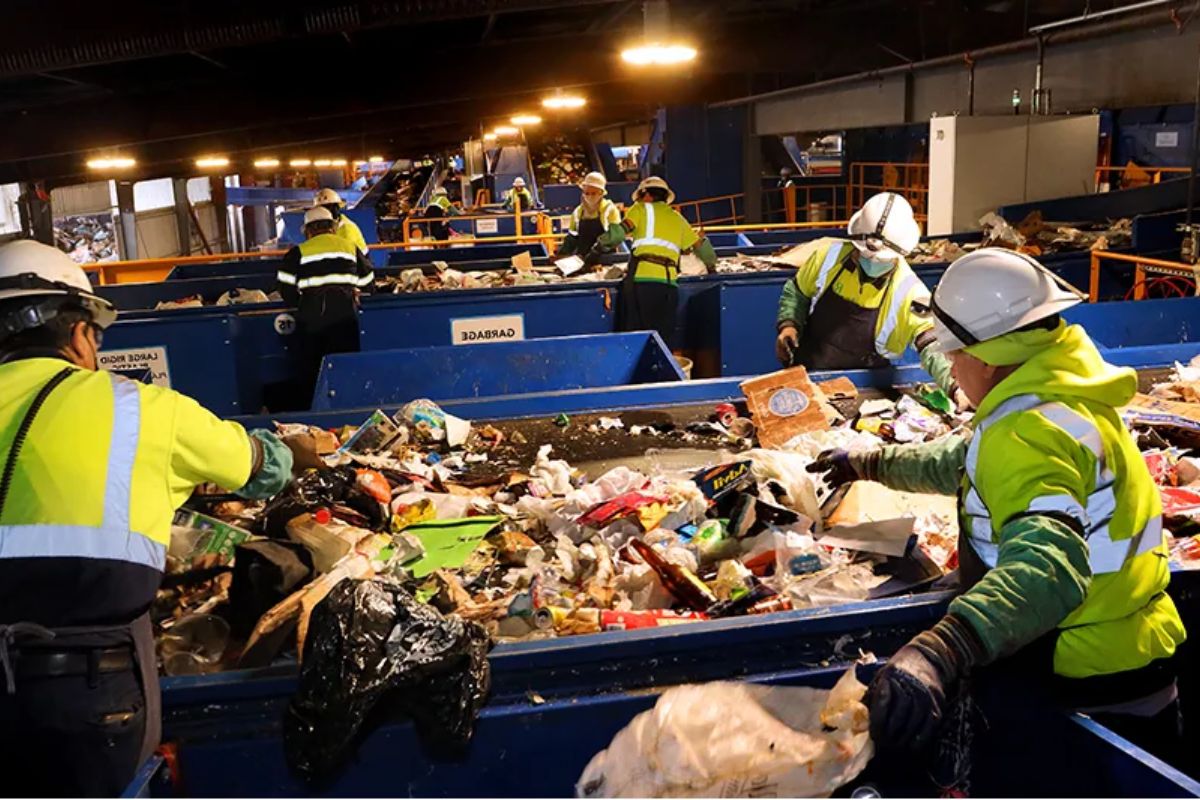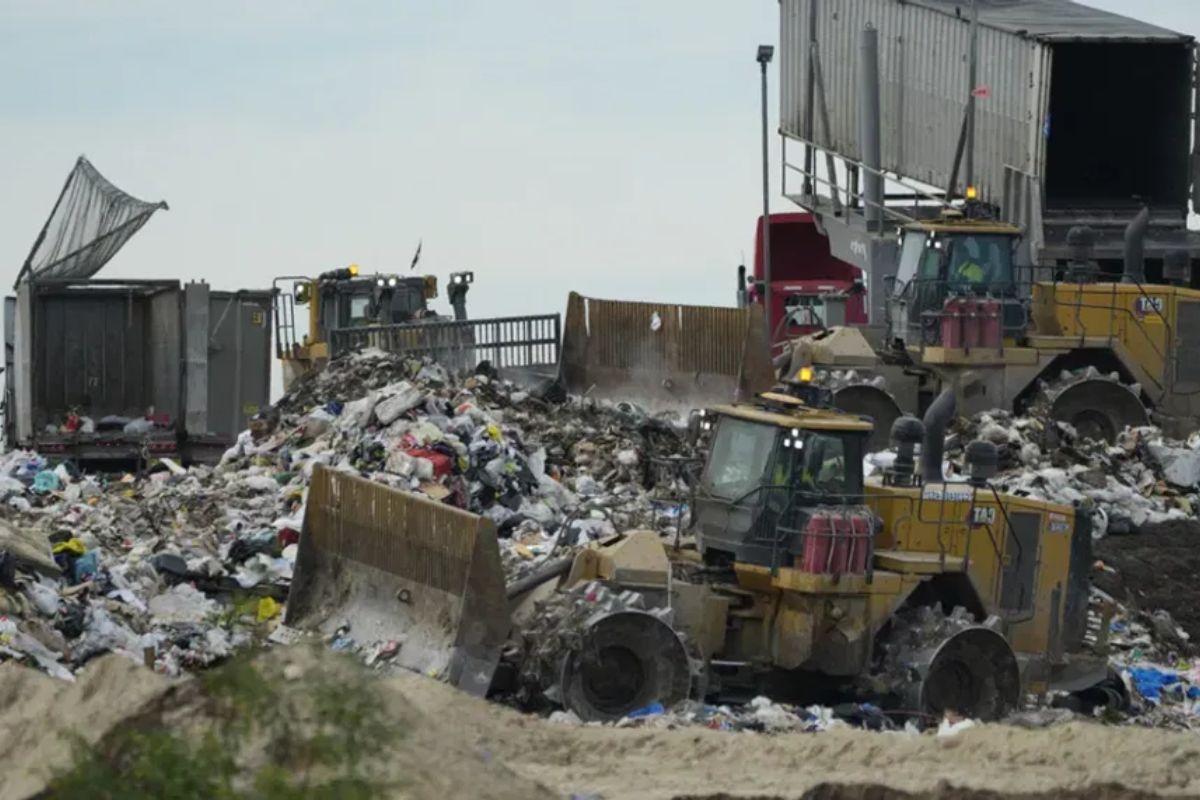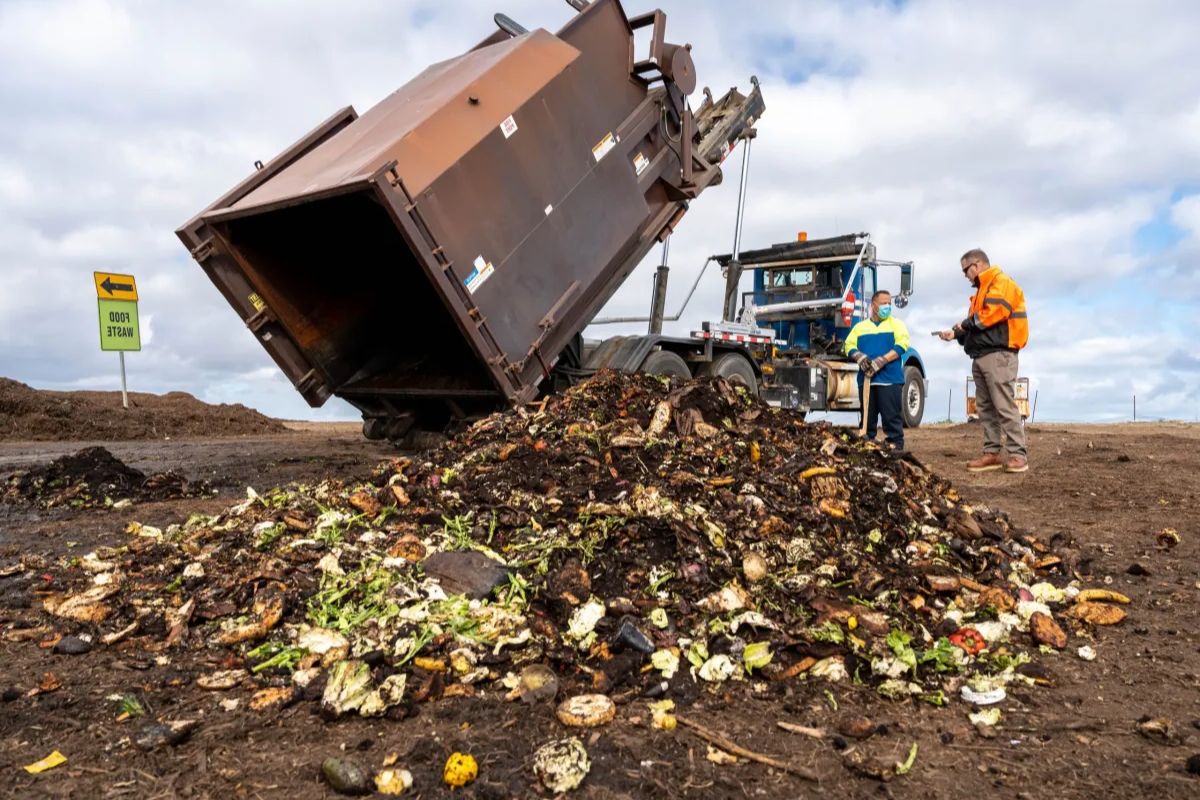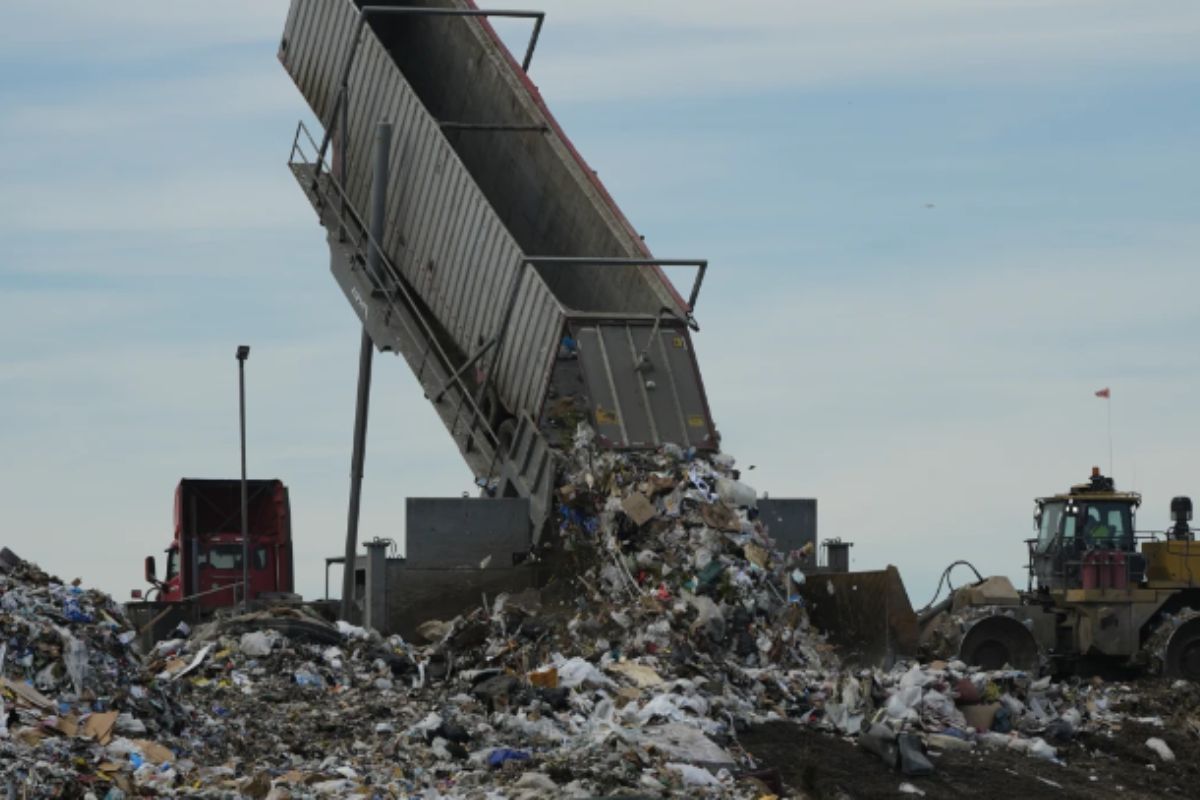California Race to Recycle Push for Food Waste: Did you know that in California alone, around 20% of the state’s waste is comprised of food scraps and yard trimmings?
While the push for food waste management is commendable, the question arises: is the pace at which California is moving towards this goal too swift?
With ambitious targets and environmental concerns at stake, exploring the nuances and potential consequences of this rapid transition becomes crucial.
Stay tuned to uncover the complexities surrounding California’s race to recycle and the potential implications of its accelerated food waste management initiatives.
Key Takeaways
- Lack of infrastructure hampers organic waste recycling efforts.
- Behavioral challenges and pandemic-induced delays hinder progress.
- Surplus compost management poses a significant future challenge.
- Addressing setbacks and lack of education is crucial for success.
California’s Struggle to Meet Waste-Reduction Targets
California’s journey towards meeting waste-reduction targets is fraught with obstacles, casting doubt on the state’s ability to fulfill its ambitious goals in the near future. Two years into the initiative aimed at diverting organic waste from landfills, California is facing significant challenges, particularly in implementing effective food recycling programs. The slow progress is raising concerns about the state’s capacity to achieve next year’s waste-reduction targets.
One of the major hurdles hindering California’s progress is the lack of infrastructure to support widespread organic waste recycling. Many cities and counties struggle to establish the necessary facilities for processing organic waste efficiently. Additionally, there’s a need for more robust educational campaigns to increase public awareness and participation in food waste management programs. Without adequate infrastructure and public engagement, California may find it increasingly difficult to meet its waste-reduction goals.
Addressing these challenges will be crucial in steering the state towards a more sustainable waste management system.
Previous SaThe Environmental Impact of Organic Wastetorm Consequences
With growing concerns over environmental sustainability, the consequences of organic waste accumulation have become an increasingly urgent issue to address. The environmental impact of organic waste, such as food scraps and yard waste, can’t be overlooked. Here are some key points to consider:
- Methane Emissions: Organic waste in landfills decomposes anaerobically, releasing methane—a potent greenhouse gas that contributes to climate change.
- Soil Contamination: Landfills leach harmful chemicals into the soil, affecting water sources and harming ecosystems.
- Resource Depletion: When organic waste is landfilled, valuable nutrients that could enrich soil are lost, leading to decreased soil fertility.
- Air Pollution: The transportation of organic waste to landfills generates air pollution, adding to environmental degradation.
Taking steps to manage organic waste more sustainably is crucial in mitigating these consequences and moving towards a more eco-friendly waste management system.
Behavioral Challenges and Pandemic-Induced Delays
Navigating the behavioral obstacles and pandemic-induced setbacks in organic waste management requires innovative solutions and community engagement. Encouraging individuals to change their habits and separate organic waste demands a shift in mindset and consistent education.
While the environmental urgency is clear, expecting immediate behavioral changes presents a substantial challenge. The pandemic added another layer of complexity, causing delays in the establishment of waste management contracts. As cities grapple with these obstacles, the largest food waste conversion facility in Southern California faced bankruptcy due to insufficient organic material.
This highlights the interconnected nature of behavioral challenges and operational delays, emphasizing the necessity for comprehensive strategies. To overcome these hurdles, fostering a sense of responsibility, providing clear guidelines, and establishing partnerships with communities are essential.
Addressing behavioral barriers and pandemic-induced setbacks requires a multifaceted approach that integrates education, innovation, and collaboration to ensure the success of organic waste management initiatives.
Also Read: Stanford Dominates Iriafen Stellar Performance Secures Big Win!
Implementation Setbacks and Lack of Education
Overcoming the behavioral challenges and pandemic-induced delays in organic waste management necessitates addressing the implementation setbacks and lack of education, which have hindered progress in California’s race to recycle. The struggle to transition towards efficient food waste management is deeply rooted in cultural norms favoring convenience over sustainability.
Educating individuals about waste separation within a compressed timeline poses a significant challenge, as highlighted by Coby Skye, the retired deputy director for environmental services at Los Angeles County Public Works. To delve deeper into the complexities surrounding implementation setbacks and lack of education, consider the following:
- Limited public awareness about the importance of organic waste management.
- Insufficient resources allocated towards educational campaigns on waste separation.
- Lack of clear guidelines and consistent messaging regarding recycling practices.
- Cultural barriers that prioritize convenience over sustainable waste management solutions.
Addressing these issues is crucial to accelerating California’s progress towards effective food waste recycling and achieving a more sustainable future.
Surplus Compost and Future Challenges
Amidst the success of increased organic waste collection in some communities, a new challenge emerges – an excess of compost that poses potential complications for California’s recycling ambitions. While it’s a positive outcome that more organic waste is being diverted from landfills, the surplus compost raises questions about the state’s readiness to manage the volume produced. This surplus not only strains existing composting facilities but also highlights the need for a comprehensive plan to utilize or redistribute excess compost effectively.
Looking ahead, California’s goal of reducing organic waste sent to landfills by 75% from 2014 levels by 2025 may face hurdles if surplus compost continues to accumulate without a clear strategy for its use. Finding innovative ways to repurpose excess compost, such as exploring partnerships with agricultural industries or expanding community composting programs, will be crucial to prevent the surplus from hindering the state’s recycling progress. As California races to lead the nation in recycling initiatives, addressing the challenge of surplus compost is an essential step towards achieving a sustainable and efficient waste management system.
Conclusion Of California Race to Recycle Push for Food Waste
As California races to meet waste-reduction targets, the push for food waste management may be moving too quickly. With environmental consequences at stake, behavioral challenges, pandemic-induced delays, and lack of education pose significant hurdles.
Surplus compost and future challenges loom ahead. It’s crucial for policymakers and individuals alike to strike a balance between progress and sustainability to ensure a successful and effective transition towards a more environmentally conscious future.
Our Reader’s Queries
What does California do with food waste?
As of the start of 2022, California residents are required to have compostable carts and access to organic waste collection services. Towns, cities, and counties in the state must ensure that both residents and businesses have these services available, as part of the mandate to recycle organic materials.
How much food waste does California produce?
Approximately 30-40% of the U.S. food supply is estimated to end up as waste, with Californians discarding around 6 million tons of food annually.
What this new California law means for your food scraps?
As of January 1, California residents could face fines for not adhering to the state’s compost law. The enforcement provision now in effect implies that discarding food scraps instead of recycling them may result in penalties.
What is California doing about recycling?
Resources and assistance for SB 1383, California’s legislation on food and yard waste recycling, with objectives to reduce organic waste disposal by 75% by 2025 and ensure the distribution of at least 20% of surplus, still fresh food to Californians in need by 2025.




